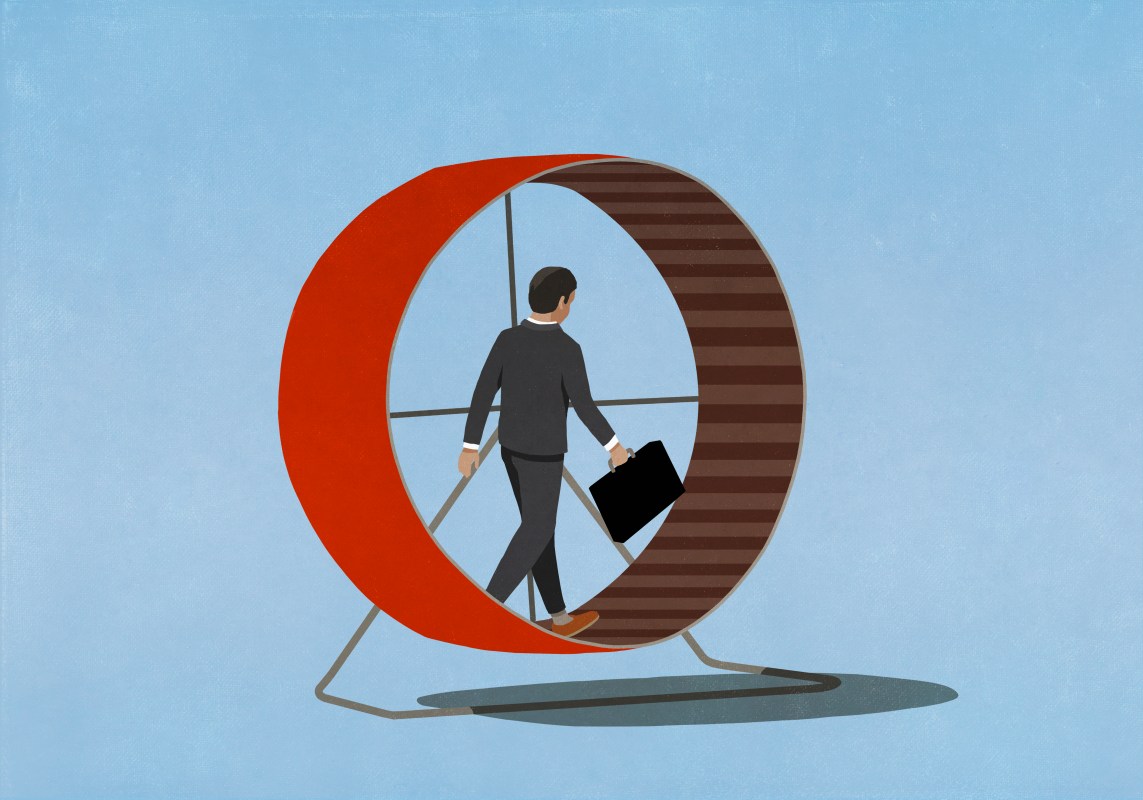It took me 31 minutes and nine seconds to complete a recent article from The New York Times.
I know that because the publication used specialized software to track my activity, registering clicks, keystrokes and the amount of time my computer ran idle. While it doesn’t normally take me so long to read a piece, the Times kept the meter running when I took a break for some standard morning rituals: a shower, a smoothie, a switch of the laundry.
The simulated surveillance was part of a recent investigation into “the worker productivity score,” and a way for the Times to display the digital stress that millions of employees now experience every day. More employees are being monitored than ever before, in a surprisingly candid, Big Brother-bid by executives to rank colleagues against each other and build cases for who deserves to be paid more…or less.
According to the Times, “Eight of the 10 largest private U.S. employers track the productivity metrics of individual workers, many in real time…Many employees, whether working remotely or in person, are subject to trackers, scores, ‘idle’ buttons, or just quiet, constantly accumulating records.”
This sort of inspection has been commonplace along assembly lines since the early 20th century, but has steadily oozed into other industries, and these days, appears to defy the level of income; no matter what you do, companies are investing are funds and manpower to make sure you’re doing as much of it as humanly possible. According to a Harvard Business Review report, the tracking trend exploded in the early days of quarantine and WFH, as “global demand for employee monitoring software more than doubled” and “searches for ‘how to monitor employees working from home’ increased by 1,705%.”
Spooky? Definitely. But managers aren’t particularly shy about broadcasting their preference for tracking. In the Times deep-dive, a man who installs monitoring systems for various firms succinctly explained their rationale: “If we’re going to give up on bringing people back to the office, we’re not going to give up on managing productivity.” It’s a popular point of view; so much money is now flowing into software companies that track employees that “performance management” has emerged as a high-growth sector in its own right. Yes, watching employees do their business is becoming a booming business.
The stories this era has wrought are insane. From programs that randomly take photos of employees through their computer screens throughout the day (making bathroom breaks a legitimate risk), to hollowed-out paychecks on account of “too much idle time,” to all sorts of other gizmos — like GPS tracking, or smart watches that collect blood pressure data — employers are effectively telling employees that they don’t trust them to do their jobs. What’s so puzzling, though, is why these employers are convinced that point systems and intimidation will lead to greater concentration and motivation in the workplace.
On the contrary, recent research suggests that when workers feel stripped of their agency, it’s rare that they become robotic task-rabbits. In fact, HBR discovered that “monitored employees were substantially more likely to take unapproved breaks, disregard instructions, damage workplace property, steal office equipment, and purposefully work at a slow pace, among other rule-breaking behaviors.” The publication even conducted a study in which workers who were told they would be monitored for a task were found to be more likely to “cheat” than those who didn’t know they were being monitored.
What’s going on here? As it turns out, workers are complicated human beings who are more inclined to complete a responsibility in an honest, effective manner when they feel A) trusted and B) in control of their own actions. But once that sense of agency has been commandeered by a suspicious and omniscient power, they feel a range of emotions, which, from an employer’s standpoint, should be seen as pretty ineffective: humiliation, anger, demoralization, disloyalty, shiftiness.
This creates a paradoxical result, where a manager’s design to detect the lazy workday practices of one freeloading employee — which may or may not exist — will foster widespread dissent, and create a trove of brand new issues. This problem can really spiral once employers broadcast their blind faith in the tracking programs that brought them these initial reports. The software incorrectly validates the employer’s fears (as it sniffs out rebellious employees, uncaring of its own role in creating them), and then the employer begins to forget that jobs do, from time to time, exist outside the purview of said software.
For instance, some hospital groups tracking radiologists have ignored the fact that radiologists need to take time to talk directly with their patients. How can this possibly be classified as insolent “idle time”?
It is lightly astonishing how often employers appear to forget, or willingly reject, the concept that their employees are real people. At the very least, they imagine them as petulant children, who — especially in the WFH era — would rather eat, drink or watch TV than put in an honest day’s work. But even if we accept that premise, since when has a mysterious cycle of carrots and sticks, compounded by comparisons to siblings, ever been an effective way for parents to raise their kids? If you want a toxic relationship with your kids, installing cameras in their bedrooms is a fantastic start.
Think, instead, about the ways in which empowering your children — treating them fairly, meeting them where they are, assuming their best instincts, forgiving their mistakes, lifting them up and listening when they need it — pays dividends. If you normally mow the front lawn, and then one day spontaneously tell your oldest that you think they’re ready to take over the chore because you think they’re going to do a really good job, do you think they’ll repay you by immediately mowing over your bed of perennials? Of course not. They’ll relish their newfound sense of agency and make sure it’s nice and trim. They might even take a picture of it and send it to you. If, after two or three years, they’ve come to hate the job, then you can shift it to the next kid, and see if your firstborn’s blend of experience and creativity might find use elsewhere in the garden.
Nothing will shut this box now that it’s open. There are too many dollars in play and too many executives fearful that their workers will never make a full return to the office. It’s up to the workers, then, to recognize times that software tracking goes too far. The dots on Slack or Microsoft Teams that indicate whether an employee is on or off their computer are reasonable enough. But a program that takes roving photographs of your living room, or a point system determined to eradicate your holiday bonus, is several steps too far.
Thanks for reading InsideHook. Sign up for our daily newsletter and be in the know.



















